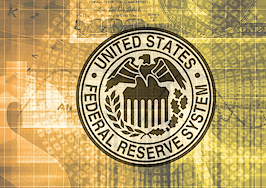- The situation has been developing for almost eight years. Now, suddenly, it's frighteningly obvious that the painful lessons of what led to the housing crisis are not going to result in an effective reform of our housing finance system -- at least not any time soon.
- Neither political party wants to act on housing finance reform or to have a meaningful discussion that might lead to a coherent national housing policy. Apparently, neither do the presidential candidates.
- Although Fannie and Freddie have produced huge profits and returned hefty dividends to the Department of the Treasury since their bailout, they aren't allowed to rebuild a capital cushion and protect the taxpayer in the event of another housing crash under the terms of the senior preferred stock purchase agreements with Department of the Treasury. And, under the terms of this agreement their capital buffer will decline to zero in 2018.
Based on the average age of real estate and mortgage professionals, you’ve likely been around long enough to remember Howard Beale’s quote from the 1976 movie “Network.”
This quote came to mind as I began composing this column in reaction to the lack of meaningful housing finance reform, specifically what to do with the government-sponsored enterprises (GSE), that are Fannie Mae and Freddie Mac.
Just like when walking past a storefront and unexpectedly catching an unvarnished glimpse of myself in the here and now, I realized in a flash that I’m now that angry, old white guy. How did that happen? Like somebody said about going bankrupt: “at first, slowly and then suddenly.”
Here’s what’s got me steamed, slowly at first.
Eight years in, where are we?
The situation has been developing for almost eight years. Now, suddenly, it’s frighteningly obvious that the painful lessons of what led to the housing crisis are not going to result in an effective reform of our housing finance system — at least not any time soon.

trekandshoot / Shutterstock.com
Nor are we any closer to developing a coherent national housing policy. Poisonous politics and shallow-minded ideologues are not going to let this happened. The dysfunction driving this failure to lead is bipartisan and equal opportunity.
Why did the light suddenly come on now when housing finance has been the core of my professional life? In fact, Down Payment Resource was inspired by a desire to find a better way to distribute vast and underutilized financial resources that help make homeownership more affordable so this issue is existential.
Our business is influenced by the state of housing finance, and the state of housing finance is heavily dependent on the state of Fannie and Freddie. We closely monitor both.
Slowly, at first — because daily monitoring anything is like watching paint dry. That’s how the bad guys get a head start: They’re scheming while we’re heads down, making a living.
Still in conservatorship
Suddenly, eight years have passed and Fannie and Freddie are still in conservatorship.
Suddenly, the concept of conservatorship no longer computes after this long. The momentum for real reform is gone. Has the moment passed us by only to reappear in the next crisis?
Suddenly, because last week I saw Bethany McLean talking about her latest book, “Shaky Ground.” One of the interviews is from Ilyce Glink’s “Big Money Real Estate” show.
It condenses decades of housing finance history into 20 insightful minutes. What she learned while searching for the truth about the causes of the foreclosure crisis resonated with my observations having been there throughout this tragic chapter of housing.
McLean gives the most agnostic, unvarnished and comprehensive accounting of what happened that I’ve ever heard. “Shaky Ground” turns a complicated and politically charged story into an enjoyable, easily digestible read.
Then, this week, this report came out: “Fannie, Freddie may need to tap Treasury, FHFA director says.”
You can almost hear the roar of competing narratives revving up for the next news cycle. But, those unencumbered by simplistic narrow viewpoints know that they are tired and long ago debunked.
I’m mad because neither political party wants to act on housing finance reform or to have a meaningful discussion that might lead to a coherent national housing policy. Apparently, neither do the presidential candidates.
[Tweet “Neither party wants to act on housing finance reform, nor have the presidential candidates.”]
A dangerous situation
But, this is a dangerous situation that not only real estate professionals but also for all voters — who should be raising hell over it. Regardless of your politics, housing is too significant to the health of our economy to ignore. To dawdle until the next crisis hits is irresponsible and will cause even deeper pain for us all.
I’m mad because though Fannie and Freddie have produced huge profits and returned hefty dividends to the Department of the Treasury since their bailout, they aren’t allowed to rebuild a capital cushion and protect the taxpayer in the event of another housing crash under the terms of the senior preferred stock purchase agreements with Department of the Treasury. And, under the terms of this agreement, their capital buffer will decline to zero in 2018.
(The GSEs were advanced $187 billion — $45 billion of that forced on them like a usurious payday loan to cover paper losses rather than necessary operating capital. They’ve returned about $240 billion including a dividend of $96.5 billion)
I’m mad because conservatorship is supposed to be temporary, and its purpose is to protect the assets of a troubled enterprise while it re-establishes its financial health and viability, not to put a boot to its throat until it suffocates and we, the people, are left to foot the bill. Eight years on, and this is where we stand.
I’m mad because Congress and the Federal Housing Finance Agency (FHFA) under Ed DeMarco temporarily raised Fannie’s and Freddie’s g-fees (loan guarantee fees) — and passed them on as higher costs to individuals and families buying homes — then used that money to fund the payroll tax cut.
And most recently, Congress considered permanently increasing the g-fees and placing the cost of highway improvements on the backs of homebuyers.
That threat has eased for now as the House of Representatives overwhelmingly voted on Thursday to remove this from a massive transportation bill. Although that’s good news, it once again proves that there is no substitute for hyper-vigilance and activism.
I’m mad because during the GSEs’ primacy their executives and investors had financial windfalls while taxpayers covered the losses. Today, Congress and the Department of the Treasury spends the GSEs’ profits however it wants, and taxpayers are still on the hook for any losses.
[Tweet “In the GSEs’ primacy its executives had financial windfalls — taxpayers covered the losses. “]
The point here is not a blind defense of Fannie and Freddie. There’s plenty of blame to go around. Get over it, and understand that whatever happens to them will have a huge impact on the health of our industry and our economy — and therefore, you and me.
I’m mad, and you should be too.
What to do?
What to do about it? I think it first starts with realization that we owe it to the nation, homeowners and potential homeowners to get to work on meaningful reform.
About 1.1 million of you belong to one of the most powerful lobbies in the U.S. Join me in sending a message to Congress that the status quo is unacceptable, irresponsible and dangerous.
Rob Chrane is a former Realtor and broker with more than three decades of experience in real estate and mortgage finance. He is the president of Down Payment Resource.



